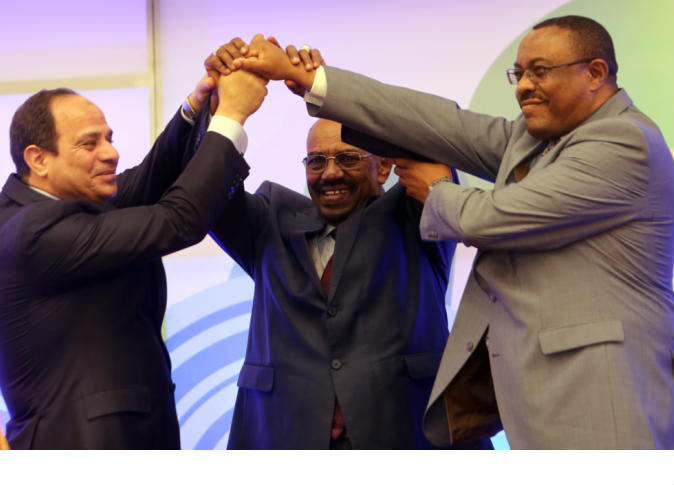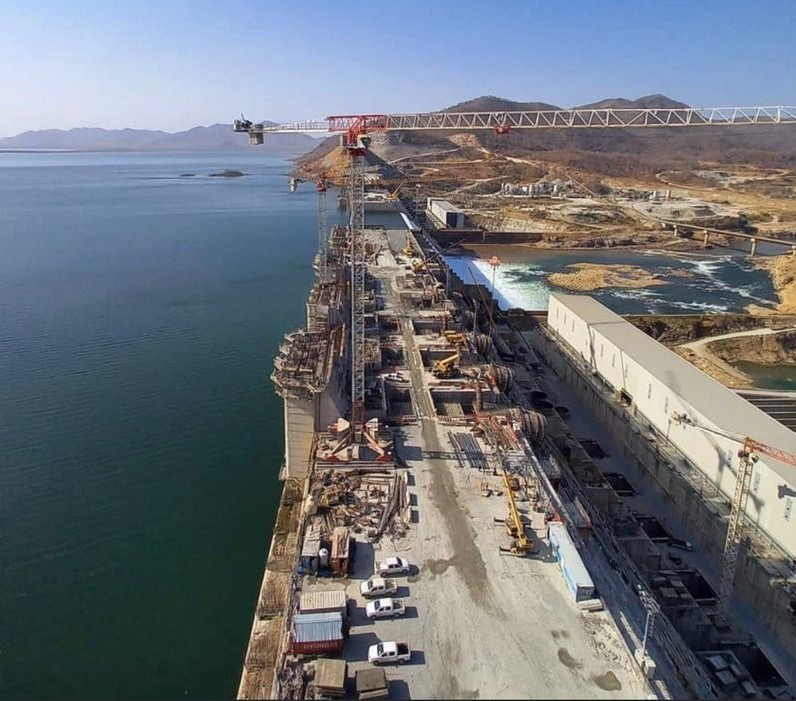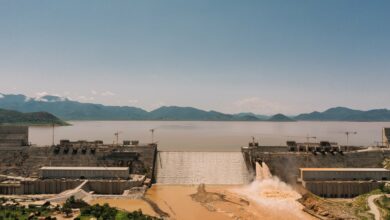
For the 10th time, the six-party meeting of the Renaissance Dam negotiations, which was attended by foreign and water ministers in Khartoum on Saturday, failed to find solutions to outstanding problems between Egypt and Ethiopia, especially with regards to the French and Dutch consulting firms tasked with the project's technical studies.
Observers are still counting on the next round of negotiations, slated for December 27, to reach an understanding after nearly two years of negotiations. Others, howver, believe Ethiopia is stalling until the completion of the dam, of which 50 percent has already been constructed.
But Egypt has the following three alternatives if the negotiations fail completely:
1- To cancel the Declaration of Principles that was signed on March 23 by Egyptian President Abdel Fattah al-Sisi, Sudanese President Omar al-Bashir and Ethiopian Prime Minister Hailemariam Desalegn.
The document contains 10 basic principles that preserve the Egyptian rights to the Nile water and that are consistent with the general rules of international law that regulate the use of common rivers.
The principles include cooperation, development and economic integration, a pledge not to cause significant harm to any country, the fair and equitable use of water, cooperation in the first filling of the reservoir and the annual operation of the dam, confidence-building, exchange of information, safety, respect of sovereignty and territorial integrity and peaceful resolutions of disputes.
The document also includes mechanisms for the settlement of disputes between Egypt and Ethiopia, including consultation, negotiation and mediation in accordance with international law and agrees not to prejudice the historical conventions of the Nile water.
However, it does not address water shares or uses, mentioning instead the filling and operation of the dam.
The agreement is to be followed by other agreements of principles.
Nader Noureddine, professor of water resources at Cairo University’s Faculty of Agriculture, says Ethiopia is misusing the Declaration of Principles and is stalling to gain time to complete the construction of the dam.
He adds that Egypt has jumped the gun by signing this agreement, which explicitly states that Ethiopia has absolute sovereignty over all water resources and recognizes the legitimacy of the dam without reservation, while it does not tackle any guarantees for Egypt's historical share of the Nile water.
“Parliament should cancel the Declaration of Principles. In this case, Egypt can withdraw its recognition of the dam in accordance with international law and the Egyptian Constitution,” says he.
2- To stop negotiations and resort to the United Nations and the Security Council.
Noureddine says the basic rules of international law and the Nile Basin countries regarding the use of water do not allow any country to exploit its rights without the approval of the other countries.
He says Ethiopia has committed numerous violations by building a high dam, as international law and United Nations agreements stipulate that upstream countries should build low dams so as not to harm downstream countries.
“Egypt should make it an international issue and demand the countries that finance the dam to stop funding it because it threatens its national security,” he says.
3- To file a lawsuit with the International Court of Justice
Noureddine also suggests that Egypt should file a lawsuit with the International Court of Justice in The Hague so as to pressure Ethiopia to sign an agreement that ensures Egypt's share of Nile water.
“Egypt should consider this a hostile act on the part of Ethiopia because it did not notify it in advance of the construction of the dam,” he says.
Edited translation from Al-Masry Al-Youm



